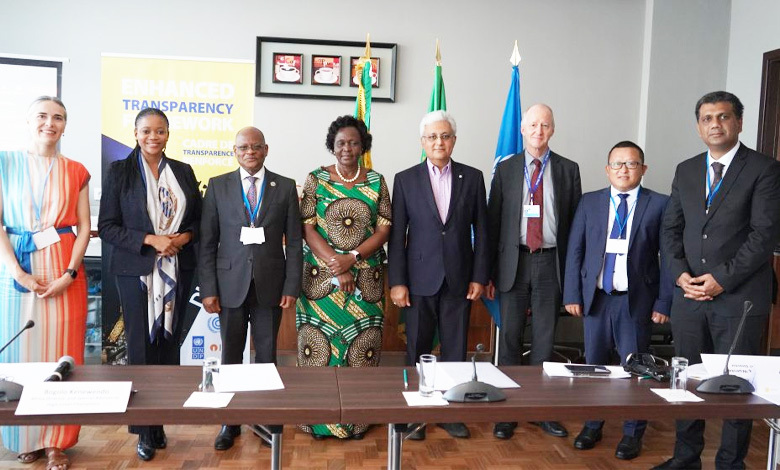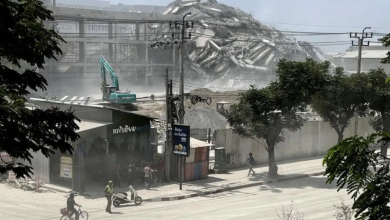Transparency for Climate Action: The African Perspective

In the face of unprecedented global climate challenges, Africa has emerged as a region of profound significance in the ongoing dialogue surrounding climate action and environmental accountability.
The second Africa Dialogue on the Enhanced Transparency Framework (ETF) aimed to strengthen national capacity to improve reporting on climate action and create momentum towards the submission of first biennial transparency reports (BTR). The discussion, which took place during Africa Climate Week 2023 in September, was centred on the first BTRs, which all signatory nations to the Paris Agreement must submit by the end of 2024 at the latest. An essential part of the ETF, the BTRs show how the Paris Agreement is being implemented.
UN Climate Change and the Initiative for Climate Action Transparency (ICAT), working with the Africa NDC Hub and UNDP, hosted the discussion, which was arranged as part of the #Together4Transparency campaign in the lead-up to the UN Climate Conference (COP28) in Dubai.
Increasing trust across borders
UN Climate Change Director Cecilia Kinuthia-Njenga welcomed African ministers and senior policymakers to the Africa ETF Dialogue and stressed the importance of high-level visioning in creating the political momentum needed to mobilise resources, secure political buy-in, and improve transparency.
As the world prepares to reach a major milestone—the submission of the first biennial transparency reports by the end of 2024—transparency is crucial. Transparency is essential to our commitment to taking action on climate change and goes beyond simple checks and balances, the speaker said.
Henning Wuester, the director of ICAT, emphasised that the Paris Agreement is not moving forward as planned and that immediate action is needed to strengthen implementation. He underlined how crucial transparency is to the development of national policy frameworks for the implementation of nationally determined contributions, or NDCs, or national climate action plans, at the national level as well as the mobilisation of funding through measurement, reporting, and verification. “Transparency builds international confidence and is crucial to ensure national implementation,” Wuester stated.
Read More: Climate Change Forces Snow Leopards to New Heights, Study Shows
There has been progress in enhancing national transparency frameworks and developing capacity since the first session of the Regional Transparency Dialogues took place in Gabon last year. Eleven new ICAT projects, for example, have been started in Africa.
At the high-level opening of the two-day dialogue, ministers, vice-ministers, and high-level policy makers from Cabo Verde, Côte d’Ivoire, Mauritius, Mozambique, Nigeria, São Tomé and Príncipe, and Somalia outlined their countries’ visions for the ETF process and highlighted the advantages and difficulties of its implementation.
Enhancing reputation and opening up resources
Numerous participants identified issues that still need to be addressed, such as a lack of funding, difficulties in obtaining and analysing trustworthy data, and a lack of capacity and national expertise.
Participants underlined that, when it comes to financial needs, transparency not only helps to maximise the efficacy of already-existing resources but also communicates to regional and global financial institutions that national strategies and actions are subject to stringent oversight and reporting, boosting their legitimacy and raising the possibility of receiving support. Moreover, transparency initiatives can aid in securing funding from the private sector to implement the NDC.
The African Development Bank (AfDB) stressed the significance of the ETF in this context for member nations seeking to make educated investment choices for low-emission and climate-resilient development. Participants were invited to join the Africa Climate Risk Insurance Facility and the Climate Change and Green Growth Strategic Framework, among other AfDB initiatives.
While updating NDCs and creating new policies, participants emphasised the significance of evaluating the greenhouse gas impact of those measures and policies. This is because a robust policy foundation can aid in directing investment decisions for the necessary transition.
Members of civil society were also present at the Africa ETF Dialogue. While the media demanded greater training and access to climate data and other trustworthy sources of information, young people urged governments to permit more active and meaningful participation in the planning and execution of climate action programmes.
Experts from various nations discussed on the margins what transparency meant to them, ranging from being open and honest with support providers to being responsible for the climate pledges made under the Paris Agreement.



